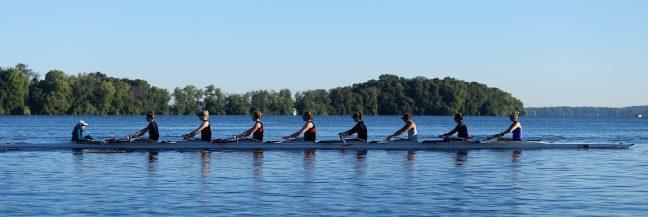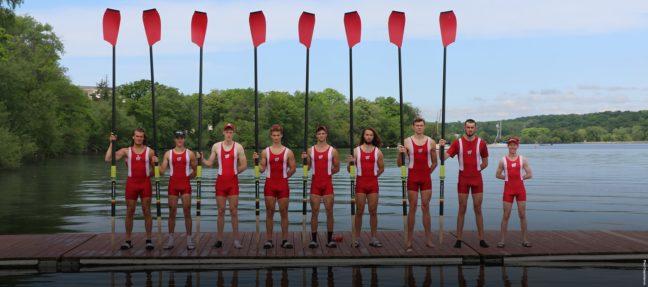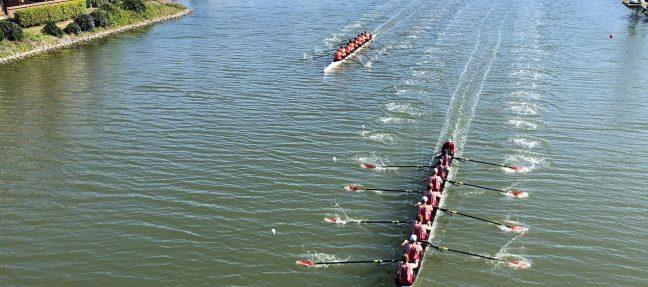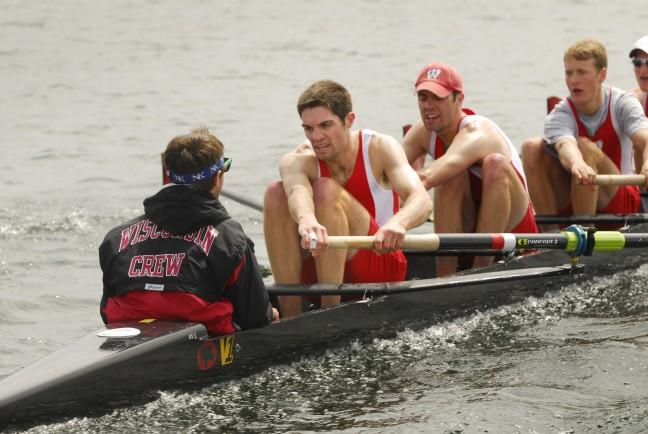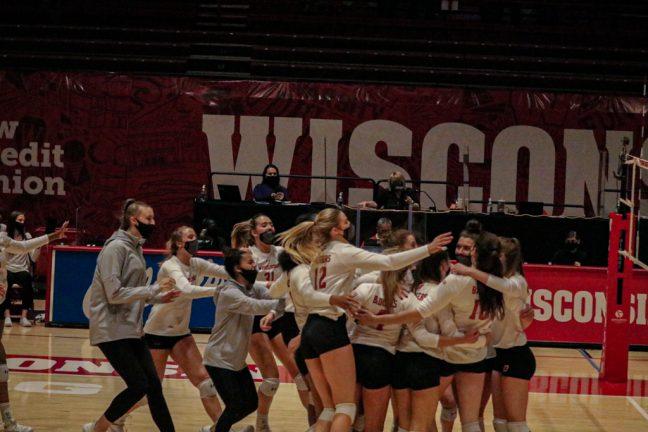While football may dominate the headlines in Madison this fall, two other teams have similarly high expectations for success on a different surface – the Wisconsin men’s and women’s rowing teams.
On the men’s side, Wisconsin hopes its experience will lead to a strong fall season. Returning six of their top eight rowers, the Badgers’ coaching staff is hoping this team’s past success will drive them toward an even better season than last year, when the top varsity team finished fourth in the Intercollegiate Rowing Association National Championships.
Beginning with its first race in Boston Oct. 23, this year’s squad will rely heavily on its seniors, as their mindset heading into their final season could determine how Wisconsin fares.
“I want to see some seniors really make the next step, understand the challenge ahead of them and push, push, push, as opposed to resting on any real or imagined world,” head coach Chris Clark said. “That’s the thing I’m most looking forward to as both a challenge and an opportunity.”
Although the team came painfully close to earning a medal in the final race last season, expectations are only increasing this season. Finishing less than five seconds behind the winning boat at the IRA Championships, a national title seems within reach for the Badgers this year.
One of the biggest obstacles standing in the way of an IRA title is the Badgers’ size, as the men’s rowing team is shorter and lighter than many of its competitors. While this can act as a disadvantage, the team’s rigorous conditioning program usually makes up for this issue.
“We’re not going to out-physical anybody … so we make up for it with exceptionally tough training and really push them as hard as we can, and then it pays off,” Clark said.
In a sport where well over half the team consists of walk-ons, student-athletes that may not have envisioned themselves as Division I rowers play a major role in the team’s success.
Along with the senior rowers stepping up, coaches believe the development of second-year rowers, especially those who were walk-ons, will play a pivotal role in UW’s success this year.
“[The sophomores] have respect for the varsity guys, and they think ‘I can’t be like that,'” Clark said. “A lot of them can, they don’t get it. The coach can only say so much – they have to believe it.”
UW’s rowing team relies on these quality walk-ons to become leaders of the squad before they graduate, and the Badgers will be counting on some former walk-ons this year as they try to build on a stellar 2011 spring season.
Women return with more experience
On the women’s side, the Badgers are coming off a season where they finished ninth at the NCAA Rowing Championships, a race that left them hungry for a better performance this year.
“Maintaining success is sort of baseline; we’re working on continuing to improve,” head coach Bebe Bryans said. “I think that is part of our key, is that we’re not complacent with what we’ve done, both on the openweight or the lightweight side. We’re really looking to improve upon it.”
Opening their season Sept. 18 in Milwaukee, UW has one unique advantage over many of its competitors. Pushing the team toward these ever-increasing goals is what Bryans describes as “spunk” – a genuine team chemistry that can make the difference in competitive races.
“The combination of personalities, I think they’ve got a really great attitude that helps them bring out the best in themselves and each other,” Bryans said.
This positive attitude, coupled with the Badgers’ relentless work ethic, has coaches convinced that this team is ready to fulfill the lofty expectations set before them.
Much like the men’s rowing team, another advantage for the Badgers this fall is that they are returning a team with significantly more experience than last year. A young team in 2010-11, the team is confident that the extra time on the water will lead to greater success this year.
While the Badgers appear set up for another successful year, they still have a lot to live up to.
“Our goal is to be at the top of our game, so that when the opportunity presents itself, we can take it,” Bryans said. “I think both squads, both the openweights and the lightweights, were really pretty successful last year, but neither team won national championships, and that’s where we want to be.”


